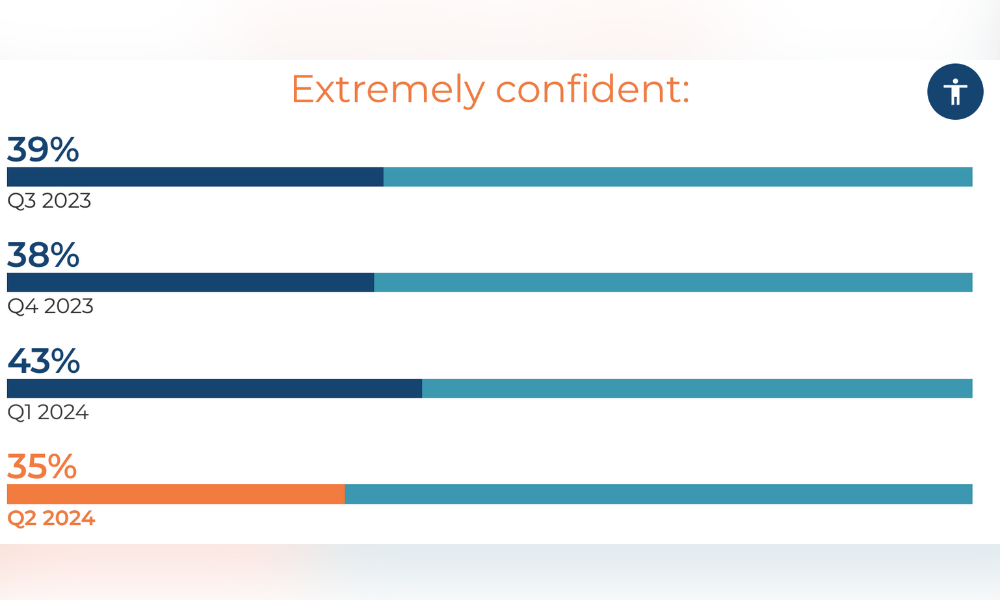This post is part of a series sponsored by IAT Insurance Group.
Cargo theft reached an all-time high last year – rising 57% in North America alone.[1]
Most commonly, these thefts are the result of an ongoing misdirection of shipment attacks known as strategic cargo theft, in which perpetrators use stolen identities from motor carriers and logistics brokers to divert and steal cargo. This form of theft increased across the country, but especially in domestic hot spots like California, Georgia, Illinois, Tennessee and Texas, recording a massive 430% year-over-year increase.
From traditional methods to sophisticated, high-tech attacks, strategic cargo thefts often target entire truckloads of food, beverages and electronics. Fleet owners and operators should take proactive measures to protect cargo from loss and understand the necessary steps to follow in the event of damage.
Top Tactics for Modern Cargo Theft
Care is required to protect cargo from sophisticated robberies, which can manifest themselves in a variety of ways, from phishing and online fraud to full-scale identity theft. Understanding common cargo theft tactics will help drivers and fleet operators develop the right risk management strategies to reduce the likelihood of loss.
If you pose as a broker or freight forwarder, Perpetrators impersonate a freight broker to secure a shipment with a customer and a carrier, then hire a driver to transport and deliver the freight. They often use industry-specific terms, provide instructions not to disclose delivery details to the shipper, and sometimes offer cash upon delivery.
Once the legitimate carrier loads the cargo, it attempts to redirect the carrier to a warehouse for quick reloading and product transportation. If the shipment doesn’t arrive, the customer investigates and discovers that they may have worked with a fraudulent broker or carrier. The unsuspecting driver who follows instructions and does not notice the fraud is often penalized.
Some fraudsters “set up” a new brokerage firm to secure the freight contract, hire a third party to transport the shipment, receive payment from the customer, and then disappear without paying the carrier.
Other common forms of strategic cargo theft include: Double brokerage And Impersonate the recipient. In dual brokerage, a broker enters into a contract with a legitimate carrier to transport freight. However, instead of fulfilling the order, the carrier transfers the load to another party without the consent of the original shipper and withholds payment without compensating the actual carrier. When impersonating a recipient, fraudsters use phishing and other cybercrime methods to change the recipient address and intercept an existing shipment.
Effective strategies to strategically prevent cargo theft
To prevent cargo theft, it’s essential to protect your digital data from malicious actors. Here are four best practices to consider:
- Protect and verify your information.
Leveraging your own experiences and insights from colleagues and professional networks can be an effective proactive measure against freight fraud. For example, if you are contacted by an unknown person claiming to be from one of your providers, contact a trusted contact from that provider to confirm the new person’s legitimacy.
Paying attention to nuances like email addresses, phone numbers, physical addresses, logos, and even names can help prevent potential scams. Although these deviations may seem minor, they can result in significant property damage and property damage.
As a shipper or consignee, carefully tracking every truck coming and going from your location is crucial. Write down details such as the carrier number, driver’s license information, bill of lading, carrier name, and more, and if possible, use video cameras or take photos to document this information.
Although this level of control requires effort, it significantly raises the bar for criminals attempting to steal your valuable cargo.
- Screen new partnerships.
Just like our personal relationships, maintaining connections with trusted carriers or brokers is key to continued security. The trust and understanding built over time ensures your interests come first. When considering new partnerships, thoroughly vet potential vendors using references, your professional network, and data resources such as the Federal Motor Carrier Safety Administration or Carrier411 to protect your operations.
- Maintain a healthy level of skepticism.
When evaluating carriers or brokers, beware of offers that seem too good to be true. Although some degree of price differentiation exists in every industry, the core costs in the trucking sector remain relatively stable: fuel, vehicle maintenance and driver compensation. If a provider promises significantly lower rates than the competition or unusually generous driver pay, you should dig deeper to understand the reason for such offers.
- Ensure information security protocols are in place.
While seemingly basic, the following practices remain essential to protecting against modern scams, including cargo theft:
- Maintain password confidentiality. Only share important passwords with trusted, necessary parties, regularly update old passwords, and close online accounts or systems that are no longer needed.
- Avoid clicking on links from unknown sources. Encourage your employees to hover over hyperlinks and check the browser status bar before clicking a link.
- Do not respond to unsolicited emails, especially those that may attempt to impersonate a legitimate company.
If theft occurs, immediately file a report with law enforcement, notify all relevant parties, and work with your broker or insurer to begin the compensation process. By following these protocols, you can effectively address and mitigate the impact of cargo theft.
ASK A LOSS CONTROL PERSON
Do you have a question about risk mitigation? Email losscontroldirect@iatinsurance.com to receive an answer to your question in a future blog.
[1] Verisk “Analyzing Supply Chain Risk Trends in the Third Quarter of 2023.”
subjects
Trends in trucking fraud
Source link
2024-06-26 09:00:15
www.insurancejournal.com














